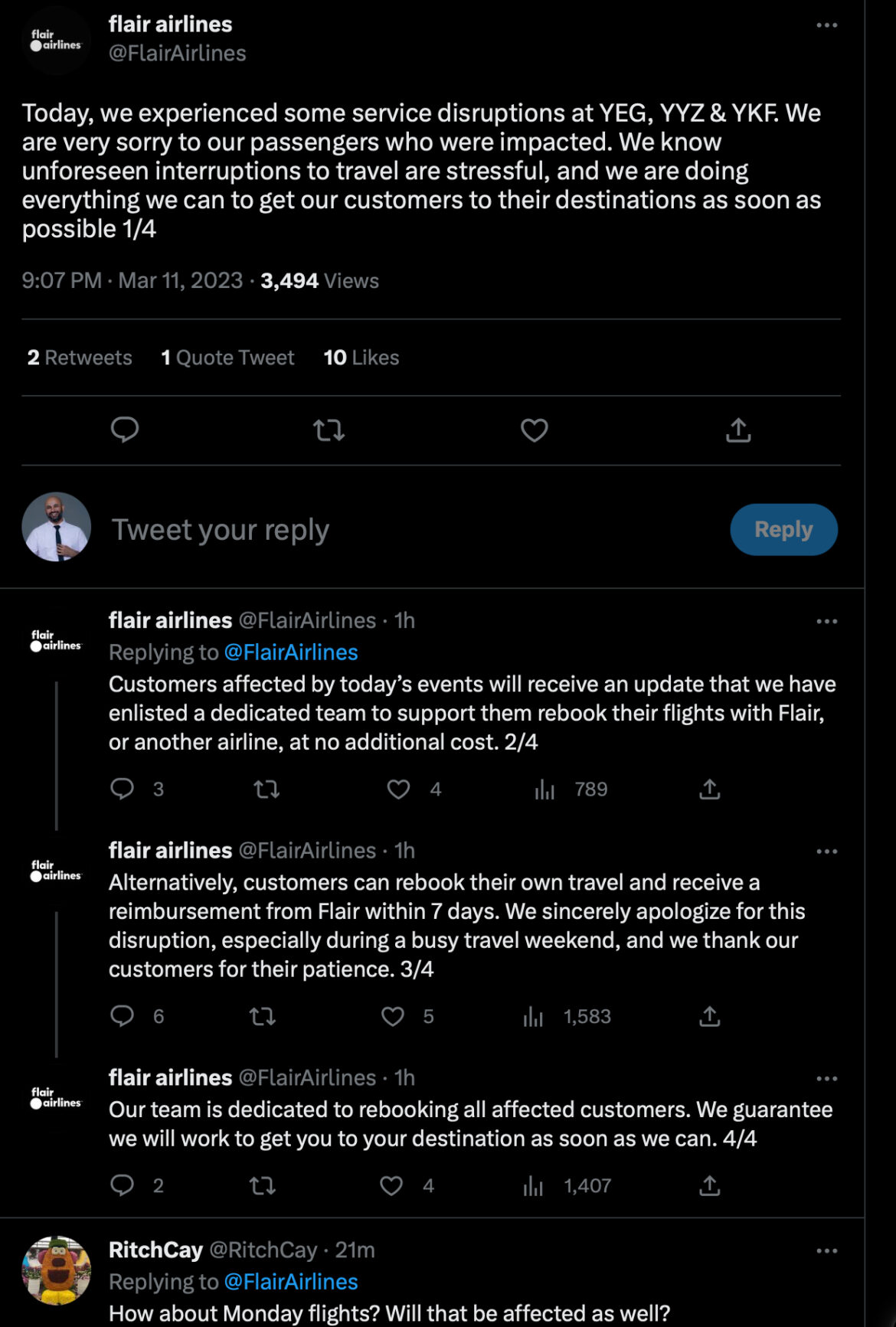Airbus And US Airlines: The Tariff Dispute Explained

Table of Contents
The Origins of the Dispute: A Trade War Takes Flight
The Airbus and US airlines tariff dispute is rooted in a long-standing battle over government subsidies provided to both Airbus and Boeing. The World Trade Organization (WTO) ruled against both companies, finding that they had received illegal government support, fueling a retaliatory trade war. This decision triggered a series of tit-for-tat tariffs imposed by the US and the European Union (EU), significantly impacting the aviation industry. Key players involved include Airbus, Boeing, the US government (specifically, the Office of the US Trade Representative), and the EU.
-
Timeline of Key Events:
- Early 2000s: Initial WTO complaints filed regarding subsidies.
- 2011-2019: Series of WTO rulings finding both Airbus and Boeing guilty of receiving illegal subsidies.
- October 2019: The US imposes tariffs on Airbus aircraft and European goods.
- Ongoing: Continued negotiations and retaliatory measures.
-
Examples of Subsidies: Both Airbus and Boeing benefited from various forms of government support, including direct funding, tax breaks, and research and development grants. These subsidies gave each company an unfair competitive advantage, according to the WTO.
-
Initial Reactions: The initial reactions from airlines and industry stakeholders ranged from concern to outright opposition, highlighting the potential negative consequences of the escalating trade conflict.
Impact on US Airlines: Higher Costs and Operational Challenges
The tariffs imposed on Airbus aircraft have directly increased the cost of purchasing these planes for US airlines. This translates to higher operational expenses, potentially impacting profitability and forcing airlines to consider alternative aircraft manufacturers. The increased costs are not absorbed by the airlines alone; they are passed on to consumers through higher ticket prices. The ripple effects extend to the broader US economy, potentially impacting jobs and investment in the aviation sector.
-
Airlines Affected: Major US airlines like Delta, United, and American Airlines, significant Airbus customers, have been directly impacted by the tariff increases.
-
Quantifiable Data: While precise figures are difficult to obtain due to the complexity of the situation, analysis shows a significant increase in the cost of Airbus aircraft for US carriers due to the tariffs.
-
Potential Economic Impacts: The increased costs associated with the Airbus and US airlines tariff dispute could lead to job losses, reduced investment in new aircraft and infrastructure, and a decrease in overall competitiveness for US airlines.
Airbus's Perspective: Navigating the Trade Restrictions
Airbus maintains that the US tariffs are unjustified and disproportionate. They have argued that the subsidies they received were not as significant as those given to Boeing and that the US action is a protectionist measure. The tariffs have undoubtedly affected Airbus's sales and market share within the US. To mitigate these effects, Airbus has implemented various strategies, including exploring alternative markets and potentially shifting production.
-
Airbus's Official Statements: Airbus has consistently issued press releases and statements condemning the tariffs as unfair and damaging to international trade.
-
Market Share Analysis: Data reveals a decline in Airbus's market share in the US since the imposition of the tariffs, though the extent of this decline is debated among industry analysts.
-
Mitigation Strategies: Airbus's response has included diversifying its customer base, focusing on expanding sales in other regions, and exploring potential adjustments to its manufacturing and supply chains.
The Ongoing Negotiations and Potential Resolutions
Negotiations between the US and the EU to resolve the Airbus and US airlines tariff dispute are ongoing. Several potential resolutions are possible, including tariff reductions, complete removal of tariffs, or even a negotiated settlement involving commitments from both sides to curb future subsidies. The outcome will significantly impact US airlines and the broader aviation industry.
-
Recent Developments: Keep up to date with ongoing developments by following news from the Office of the US Trade Representative and the European Commission.
-
Potential Outcomes: A complete resolution could involve substantial concessions from both sides. Conversely, a stalemate could result in prolonged trade tensions and lasting economic consequences.
-
Expert Opinions: Analysts offer varying perspectives on the likelihood of a swift and comprehensive resolution, with some predicting a prolonged period of trade friction.
Understanding the Airbus and US Airlines Tariff Dispute - A Path Forward
The Airbus and US airlines tariff dispute is a complex trade conflict with significant implications for the global aviation industry. Understanding its origins, the impact on US airlines, Airbus's response, and the ongoing negotiations is crucial for stakeholders and consumers alike. The dispute highlights the significant challenges posed by protectionist trade measures and underscores the need for fair and transparent competition in the global marketplace. Stay informed about the ongoing developments in the Airbus and US airlines tariff dispute; its ramifications extend far beyond the aviation sector, impacting global trade and economic stability. For further in-depth analysis, refer to resources from the WTO, the Office of the US Trade Representative, and reputable aviation industry publications.

Featured Posts
-
 Loyle Carner Announces Dublin 3 Arena Concert Date
May 02, 2025
Loyle Carner Announces Dublin 3 Arena Concert Date
May 02, 2025 -
 Blue Origin Postpones Rocket Launch Investigation Into Subsystem Problem
May 02, 2025
Blue Origin Postpones Rocket Launch Investigation Into Subsystem Problem
May 02, 2025 -
 Texas Tech Beats Kansas In Tight 78 73 Road Victory
May 02, 2025
Texas Tech Beats Kansas In Tight 78 73 Road Victory
May 02, 2025 -
 Bbcs Financial Crisis 1 Billion Loss And Unprecedented Difficulties
May 02, 2025
Bbcs Financial Crisis 1 Billion Loss And Unprecedented Difficulties
May 02, 2025 -
 Winter Weather Approaching Tulsa Day Center Requests Warm Clothing Donations
May 02, 2025
Winter Weather Approaching Tulsa Day Center Requests Warm Clothing Donations
May 02, 2025
